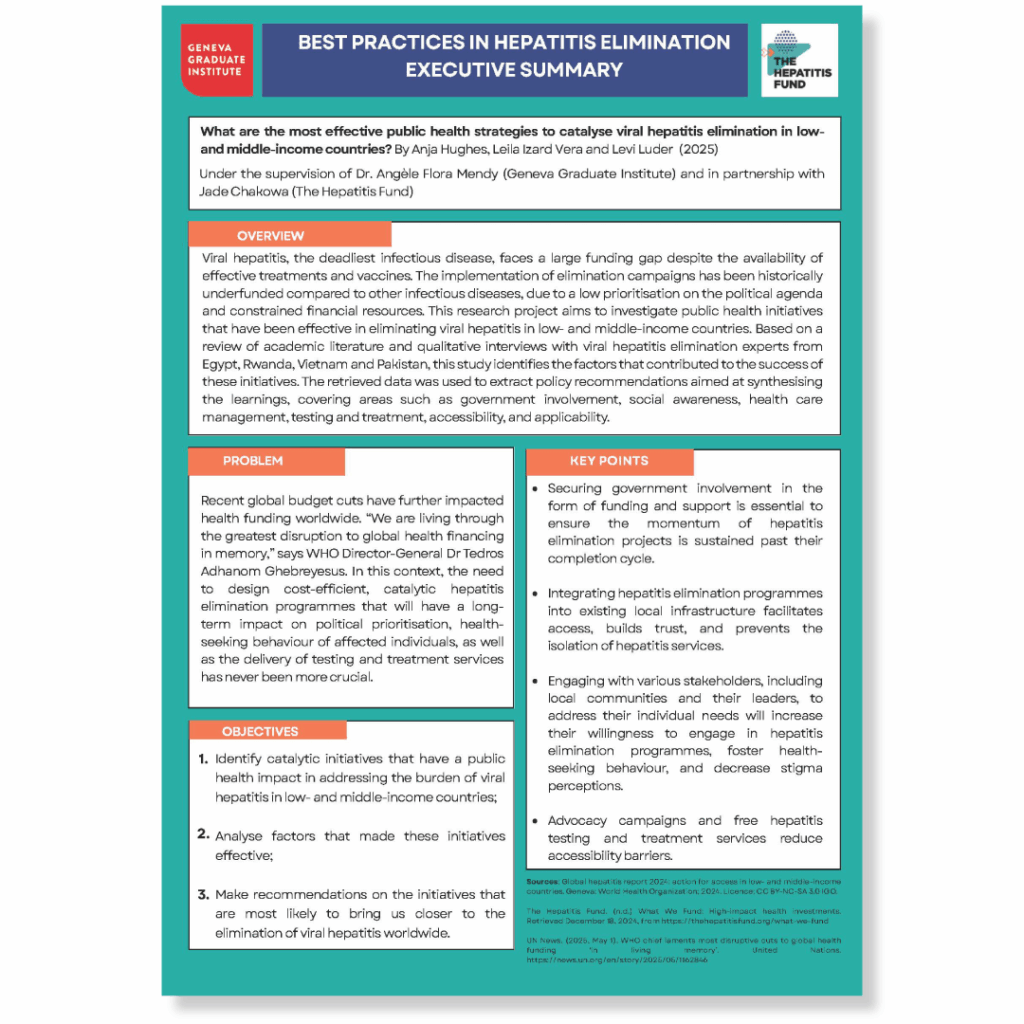This Applied Research Project, conducted by graduate students from the Geneva Graduate Institute, was proudly supported by The Hepatitis Fund as part of our commitment to catalyzing high-impact strategies for viral hepatitis elimination.
Drawing on case studies from Egypt, Rwanda, Vietnam, and Pakistan, the report identifies key factors that contribute to the success of hepatitis elimination programs in low- and middle-income countries. Through a combination of desk research and expert interviews, the authors offer a comprehensive set of 22 policy recommendations aimed at guiding funders, governments, and implementing partners toward more effective, sustainable interventions.
Among the report’s standout recommendations are:
- Integrate hepatitis services into existing health systems and maternal health platforms to improve access and sustainability.
- Decentralize care by expanding services to primary health facilities and mobile clinics, especially in underserved areas.
- Ensure free access to testing and treatment to eliminate financial barriers and improve uptake.
- Prevent vertical transmission of hepatitis B through targeted interventions during pregnancy and childbirth.
- Strengthen political commitment and cross-sector collaboration to drive national ownership and long-term impact.
- Design culturally responsive awareness campaigns to reduce stigma and promote community engagement.
You can download the full report below to explore the findings and recommendations in detail..
Report authors: Anja Hughes, Leila Izard Vera, and Levi Luder.
Under the supervision of Dr. Angèle Flora Mendy. In partnership with Jade Chakowa (The Hepatitis Fund).
Download the Best Practices in Hepatitis Elimination report
Download the Executive Summary and Recommendations



